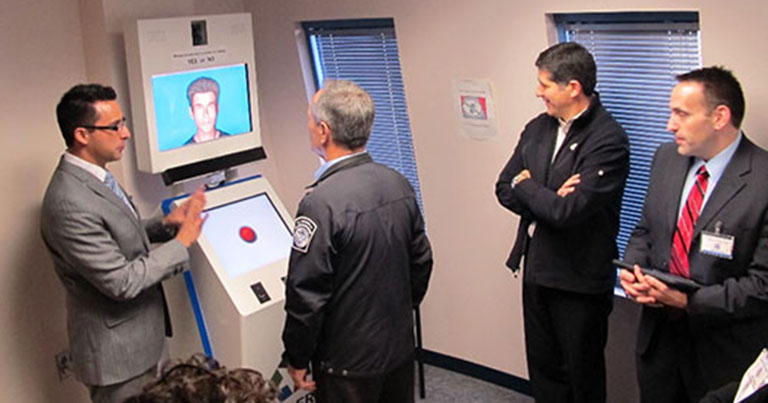
The Canada Border Services Agency (CBSA) is helping to test a technology called the Automated Virtual Agent for Truth Assessment in Real Time (AVATAR), which could help border security agents determine whether travellers arriving in Canada may have undisclosed motives for entering the country.
AVATAR has been created by Aaron Elkins, a San Diego State University management information systems professor. Elkins explained: “AVATAR is a kiosk, much like an airport check-in or grocery store self-checkout kiosk. However, this kiosk has a face on the screen that asks questions of travellers and can detect changes in physiology and behaviour during the interview.
“The system can detect changes in the eyes, voice, gestures and posture to determine potential risk. It can even tell when you’re curling your toes.”
If implemented at a border checkpoint, travellers would step up to the kiosk and be asked a series of questions, such as: “Are you carrying any weapons with you?” Eye-detection software and motion and pressure sensors would monitor the passengers as they answer the questions, looking for tell-tale physiological signs of lying or discomfort.
The kiosk would also ask a series of innocuous questions to establish baseline measurements, so people who are just nervous about flying, for example, wouldn’t be unduly singled out. If the kiosk detected deception, it would flag the passenger for further scrutiny from human agents.
Elkins said he is now looking for government agencies willing to implement the technology in a real-world environment. “AVATAR has been tested in labs, in airports and at border crossing stations,””he said. “The system is fully ready for implementation to help stem the flow of contraband, thwart fleeing criminals, and detect potential terrorists and many other applications in the effort to secure international borders.”






